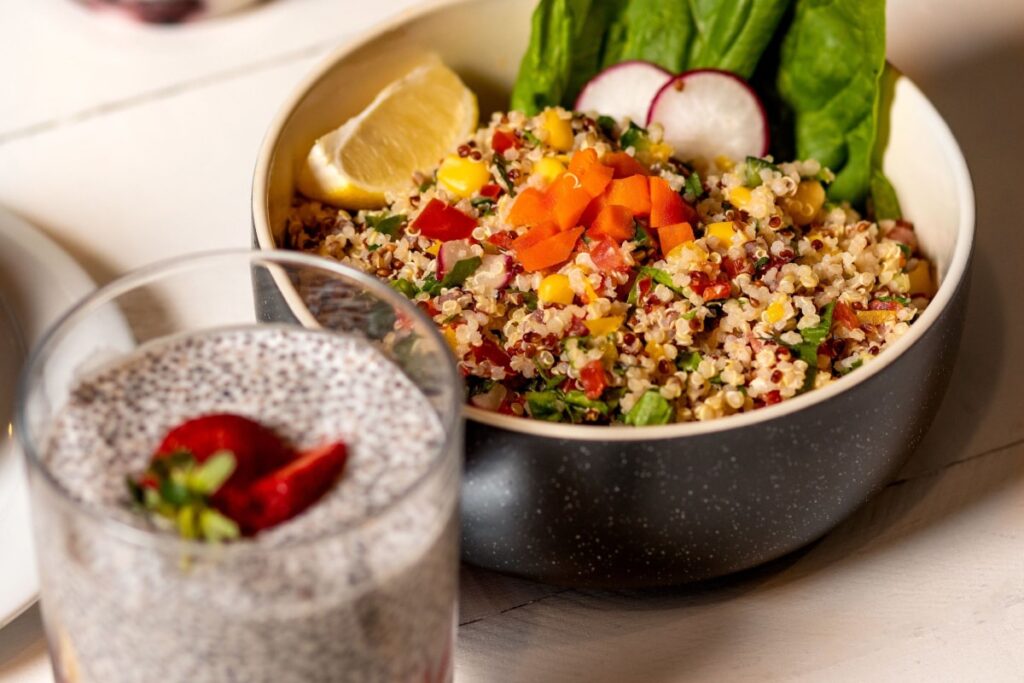
Fertility is a critical factor for couples trying to conceive. Female infertility can often be influenced by dietary and lifestyle choices, making it essential to focus on nutrition and healthy habits. While some couples achieve pregnancy quickly, others may need more time and assistance.
At Rejuvenate HRT, we believe that personalized care, nutrition, and lifestyle changes can significantly boost fertility and improve the chances of conception.
Understanding the factors that influence fertility and taking proactive steps can help you on the path to a healthy pregnancy.

Understanding Fertility and Pregnancy
When trying to conceive, it’s helpful to understand how fertility works and the chances of getting pregnant each month. Several factors, including age, health, and timing, affect the likelihood of conception.
What Are Your Chances of Getting Pregnant Every Month?
For a healthy woman under the age of 35, the chance of becoming pregnant in any given month is about 15-25%. This percentage depends on various factors, including the timing of intercourse in relation to ovulation, overall health, and lifestyle choices.
While some couples conceive within the first few months, others may take longer. Most couples will conceive within a year of trying, but factors like age, reproductive health, and timing can extend or reduce that timeframe.
Understanding your individual chances of getting pregnant can help set realistic expectations and prepare you for the next steps.
Preparing for a Healthy Pregnancy
Optimizing your fertility starts with preparing your body for pregnancy. Addressing female infertility often involves making dietary and lifestyle changes to improve reproductive health.
Achieving a healthy weight, proper nutrition, and consulting healthcare providers can all contribute to improving fertility.
Achieving a Healthy Weight for Fertility
Maintaining a healthy weight is crucial for reproductive health. Research shows that women who are overweight or obese may experience irregular menstrual cycles and hormonal imbalances, contributing to female infertility.
Losing as little as 5% of body weight can improve fertility outcomes, especially for women with conditions like polycystic ovary syndrome (PCOS).
Similarly, being underweight can also affect fertility by disrupting hormone production, which can interfere with ovulation.
At Rejuvenate HRT, we offer personalized weight management plans to help individuals reach their optimal weight for fertility.
Balanced Diet: Eating a nutrient-dense diet can help manage weight and improve reproductive health.
Regular Exercise: Exercise not only helps maintain a healthy weight but also reduces stress, which can influence fertility.
Consultation: Speak with one of our experts to develop a weight management plan tailored to your fertility needs.

Nutrition and Fertility
Diet plays a significant role in boosting fertility. Proper nutrition can play a significant role in addressing female infertility by providing the necessary nutrients to support reproductive health.
Certain nutrients are essential for reproductive health, and consuming a balanced diet can support the body’s ability to conceive.
The Importance of Folic Acid and Other Nutrients
Folic acid is vital for both men and women when trying to conceive. This B vitamin helps prevent neural tube defects and supports healthy fetal development.
For women, taking 400-800 mcg of folic acid daily, starting before conception, can improve reproductive health.
Additionally, other nutrients such as zinc, vitamin D, and antioxidants are essential for improving fertility in both men and women. A healthy diet rich in fruits, vegetables, whole grains, and lean proteins can provide the body with the necessary nutrients to support fertility.
Prenatal Vitamins: A prenatal vitamin containing folic acid can help ensure that you’re getting the necessary nutrients to support fertility and overall health.
Antioxidants: Foods high in antioxidants, such as berries and leafy greens, can protect reproductive cells from oxidative stress, which improves egg and sperm quality.
Fertility Challenges and Solutions
Fertility is a complex process, and there are several common challenges that couples may face. Female infertility can arise from various factors, including hormonal imbalances and lifestyle choices, which need to be addressed to improve the chances of conception.
Identifying and addressing these challenges early on can increase the chances of conception.
Common Obstacles to Fertility
There are many potential barriers to conception, including female infertility caused by conditions like PCOS. Some of the most common fertility issues include:
Polycystic Ovary Syndrome (PCOS): PCOS affects female fertility by causing irregular ovulation and hormonal imbalances. Managing PCOS through diet, exercise, and medical treatment can improve fertility.
Male Fertility Issues: Low sperm count, poor sperm quality, and lifestyle factors can affect male fertility. Nutrition and lifestyle changes can often help improve these conditions.
Fallopian Tube Damage: Damage to the fallopian tubes due to pelvic infections or previous surgeries can prevent the egg from reaching the uterus for fertilization.
Consulting with a fertility specialist at Rejuvenate HRT can help identify the underlying causes of infertility and provide personalized treatment plans.

Maximizing Fertility
Timing is one of the most important factors when trying to conceive. Understanding your menstrual cycle and ovulation can help you identify the best time for conception.
Timing Intercourse and Ovulation
Ovulation typically occurs about 14 days before the start of your next menstrual period, although this can vary based on your individual cycle.
Tracking ovulation through methods like basal body temperature and cervical mucus changes can help pinpoint the fertile window — the time during which you are most likely to conceive.
Fertile Window: The fertile window generally lasts about five to seven days leading up to ovulation. Having intercourse during this period increases the chances of conception.
Tracking Ovulation: Use a fertility app or calendar to monitor your cycle and identify the best time for intercourse.
Male Fertility and Pregnancy
Male fertility is just as important as female fertility when trying to conceive. Lifestyle factors, such as diet and exercise, can significantly affect sperm health and quality.
Boosting Male Fertility for a Healthy Pregnancy
Healthy Diet: A diet rich in fruits, vegetables, and whole grains provides essential nutrients like zinc and vitamin D, which are crucial for sperm production and quality.
Avoiding Heat: Excessive heat from hot tubs, saunas, or tight clothing can negatively affect sperm production. Avoiding these heat sources can improve sperm count.
Stress Reduction: Chronic stress can impact male fertility. Engaging in stress-reducing activities like meditation, yoga, and relaxation exercises can help improve sperm quality.
Creating a Fertility Plan
Taking a proactive approach to fertility can improve your chances of conceiving. Addressing female infertility through a well-structured fertility plan can significantly improve the chances of conception.
Creating a fertility plan with the guidance of healthcare professionals can help you navigate the process.
Taking the First Steps
-
Track Your Menstrual Cycle: Start by monitoring your cycle to identify your fertile window.
-
Consult a Healthcare Provider: Speak with an expert at Rejuvenate HRT about preconception planning and necessary lifestyle changes to support fertility.
-
Lifestyle Changes: Quitting smoking, reducing caffeine, and maintaining a healthy weight can all improve fertility outcomes.
-
Prenatal Vitamins: Begin taking a prenatal vitamin that includes folic acid and other essential nutrients for fertility.

Overcoming Fertility Issues
For couples struggling to conceive, seeking medical advice is a crucial step in the fertility journey. For couples facing female infertility, seeking medical advice is crucial to identify and address underlying causes.
When to Seek Medical Help
Under 35: If you’ve been trying to conceive for a year or more without success, it’s time to consult a healthcare provider.
Over 35: For those over 35, it’s recommended to seek medical advice after six months of trying.
Known Fertility Issues: If you or your partner has known fertility challenges, such as PCOS or low sperm count, consult with a fertility specialist early on to address these concerns.
Staying Positive and Informed
Fertility challenges can be emotionally taxing, but staying informed and maintaining a positive outlook can help manage the journey.
Staying Up-to-Date on Fertility and Pregnancy
Latest Research: Stay informed about the latest developments in fertility and reproductive health.
Support Networks: Connect with others who are trying to conceive through online communities and support groups.
Stress Management: Techniques such as meditation, yoga, and breathing exercises can help reduce stress and improve overall well-being during the fertility journey.
Celebrating Milestones: Celebrate small wins along the way to stay positive and motivated.
Frequently Asked Questions
How can I increase my chances of getting pregnant?
Improving your chances of getting pregnant involves tracking ovulation, maintaining a healthy diet, managing stress, and consulting a fertility specialist if needed.
How to boost your fertility naturally?
Eating a nutrient-rich diet, exercising regularly, reducing stress, and avoiding smoking or excessive caffeine can help boost fertility naturally.
What makes a woman most fertile?
A woman is most fertile during her fertile window, the five to seven days leading up to ovulation. Tracking your cycle and timing intercourse during this window can increase your chances of conception.
What foods increase fertility?
Foods rich in antioxidants (blueberries), folic acid (leafy greens), and omega-3 fatty acids (fatty fish) can help improve fertility in both men and women.

